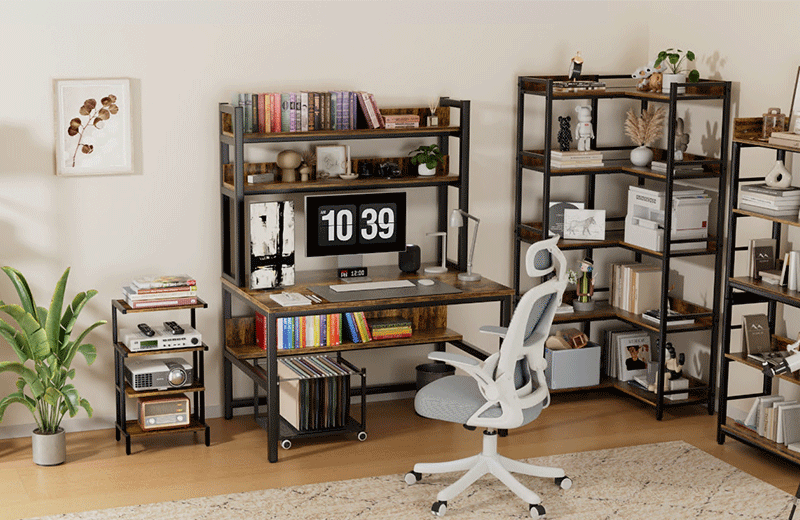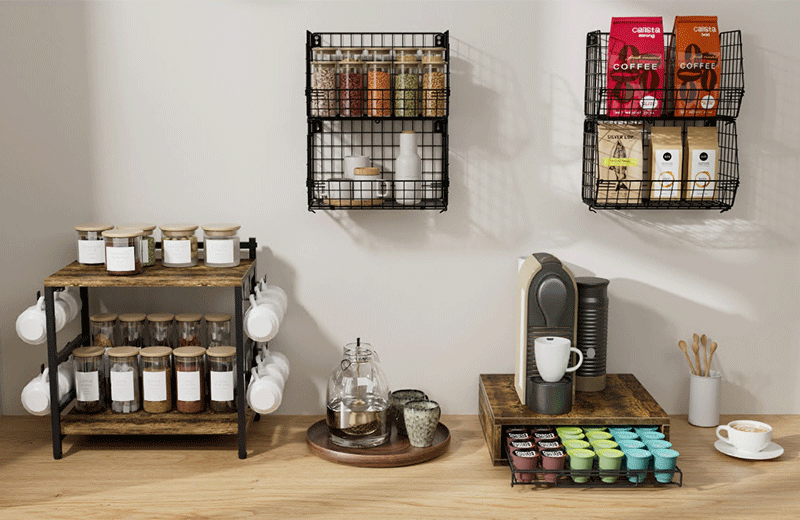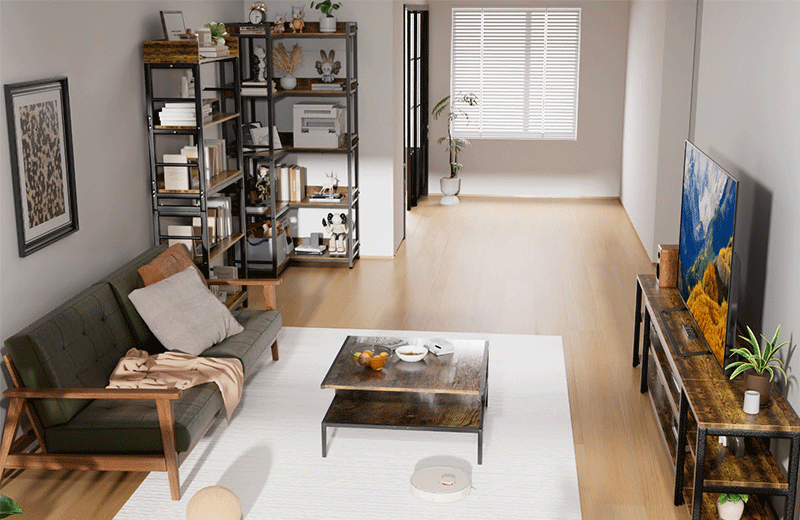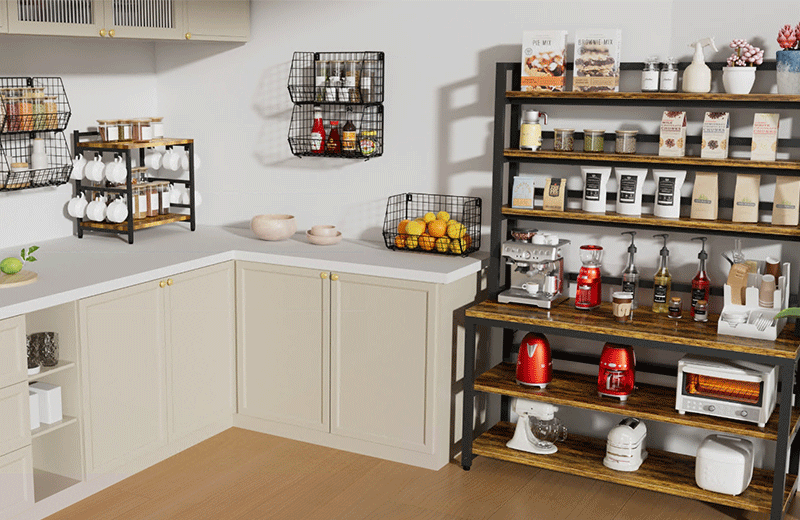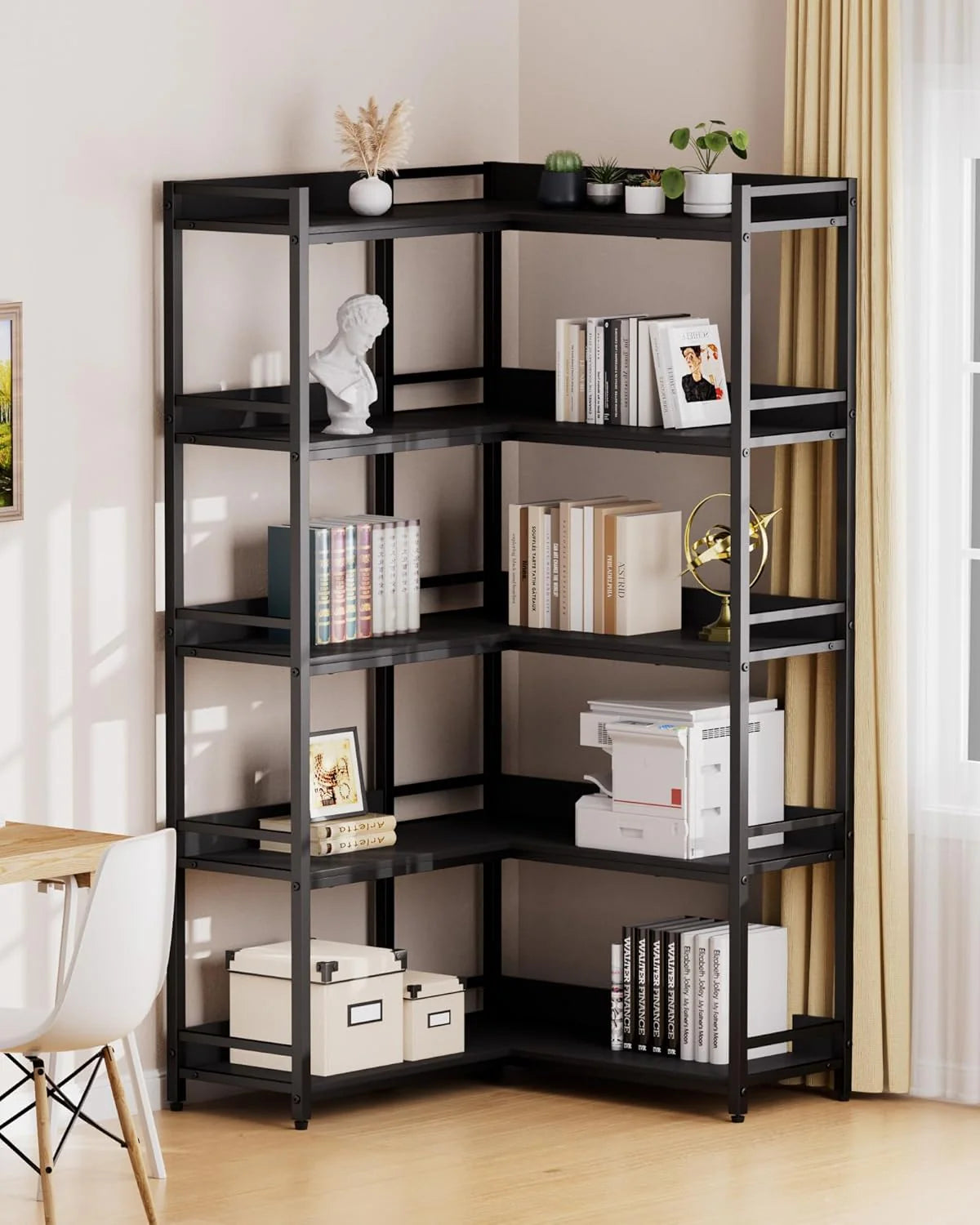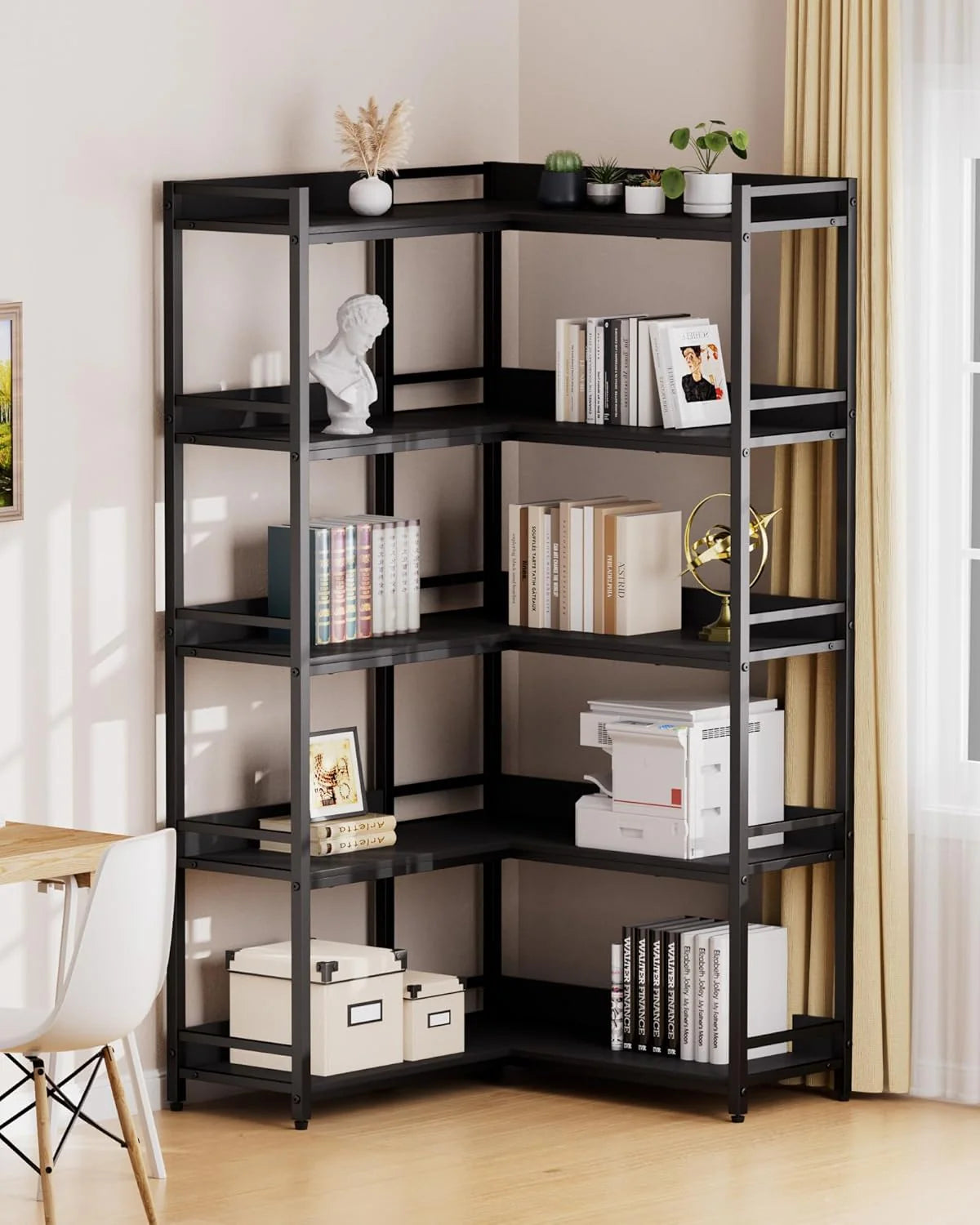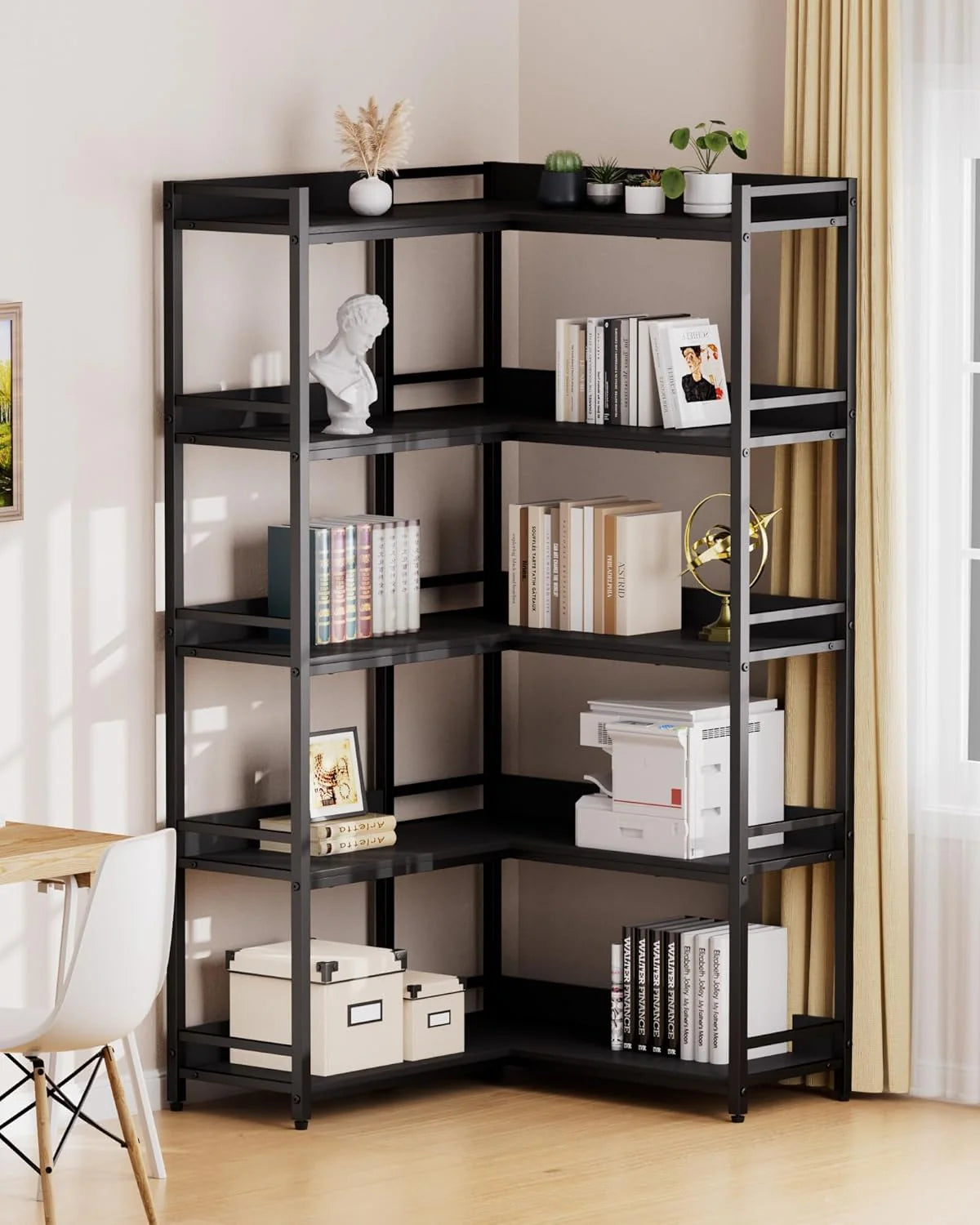Bookshelves serve as practical and decorative elements in any home, providing storage for books, displaying cherished items, and adding character to a room. When it comes to the bedroom, the decision to include a bookshelf can significantly impact the space's functionality and aesthetic appeal. This article explores the advantages and disadvantages of having a bookshelf in the bedroom, practical considerations for placement, and tips for creating a harmonious environment.
The Benefits of Having a Bookshelf in the Bedroom
- Promotes Reading Before BedHaving a bookshelf in your bedroom encourages reading as part of your nighttime routine. Reading before bed can help you unwind and relax, making it easier to fall asleep. A dedicated space for books means that you can easily access your favorite novels or self-help books without having to search elsewhere in your home.
- Personalized DecorA bookshelf can serve as a focal point in your bedroom decor. You can style it with not only books but also personal items such as photographs, art pieces, or travel souvenirs. This personalization adds warmth and character to your space, making it feel more like your own sanctuary.
- Organizational BenefitsA bookshelf provides an organized way to store books and other items that might otherwise clutter your bedroom. By keeping everything in one place, you can maintain a tidy environment, which is essential for creating a calming atmosphere conducive to relaxation and sleep.
- Space OptimizationIn smaller bedrooms, a bookshelf can serve multiple purposes. For instance, it can double as a nightstand if placed beside the bed or act as a room divider in studio apartments. This versatility makes it an excellent choice for maximizing limited space.
- Encourages Lifelong LearningSurrounding yourself with books can inspire curiosity and lifelong learning. A well-stocked bookshelf filled with various genres—fiction, non-fiction, self-help, or educational materials—can motivate you to explore new ideas and perspectives.
Potential Drawbacks of Having a Bookshelf in the Bedroom
- Clutter AccumulationWhile bookshelves can help organize items, they can also become cluttered if not managed properly. Over time, you may find that your bookshelf accumulates more than just books—magazines, knick-knacks, and other items may crowd the shelves, leading to visual clutter that detracts from the serene atmosphere of your bedroom.
- Dust AccumulationBookshelves can attract dust, which may require regular cleaning to maintain a healthy living environment. This is especially important for individuals with allergies or respiratory issues. If you have many books on display, be prepared for routine dusting to prevent allergens from building up.
- Space LimitationsIn smaller bedrooms, adding a bookshelf may take up valuable floor space that could be used for other furniture or activities. If space is limited, consider whether you truly need a bookshelf or if alternatives like digital reading devices might suffice.
- Potential DistractionFor some individuals, having a bookshelf filled with unread books may become a source of distraction rather than inspiration. The sight of numerous unread titles might induce feelings of guilt or pressure to read more than one has time for, which could detract from relaxation.
- Safety ConcernsIf you have children or pets in the home, unsecured bookshelves can pose safety risks. Tall bookcases may tip over if not anchored properly or if children attempt to climb them to reach higher shelves.
Practical Considerations for Placing a Bookshelf in Your Bedroom
If you decide that having a bookshelf in your bedroom is beneficial for your lifestyle and preferences, consider the following practical tips:- Choose the Right SizeSelect a bookshelf that fits well within your bedroom's dimensions without overwhelming the space. For smaller rooms, opt for compact designs or wall-mounted shelves that save floor space while still providing storage.
- Consider AccessibilityPlace the bookshelf within easy reach of your bed or favorite reading nook so that you can conveniently grab a book whenever you want to read. If you enjoy reading before bed, consider positioning it close enough to avoid getting out of bed frequently.
- Organize ThoughtfullyOrganize your books by genre, author, or color to create an aesthetically pleasing display that encourages you to explore your collection regularly. You might also consider incorporating decorative boxes or baskets on lower shelves to store miscellaneous items neatly.
- Incorporate LightingGood lighting is essential for reading comfortably at night. If possible, place the bookshelf near a lamp or install LED strip lights on the shelves to illuminate your collection while adding ambiance to the room.
- Personalize Your SpaceUse the bookshelf as an opportunity to showcase personal items that reflect your personality and interests beyond just books—photos from travels, art pieces you've collected over time, or plants that add life to the room.
Alternatives to Traditional Bookshelves
If you're hesitant about placing a traditional bookshelf in your bedroom due to concerns about space or clutter, consider these alternatives:- Floating Shelves: These wall-mounted shelves take up no floor space and can be arranged creatively at different heights for visual interest while providing storage for books and decorative items.
- Storage Ottomans: These multifunctional pieces of furniture serve as seating while providing hidden storage for books and magazines inside.
- Under-Bed Storage: Utilize under-bed storage bins specifically designed for keeping books out of sight yet easily accessible when needed.
- Multi-Functional Furniture: Look for beds with built-in drawers or headboards with shelving options that allow you to store books without needing additional furniture.
- Digital Alternatives: Consider using e-readers or tablets if physical books are taking up too much space; this option allows access to thousands of titles without cluttering your bedroom.
Conclusion
Deciding whether or not to place a bookshelf in your bedroom ultimately depends on personal preferences and lifestyle needs. The benefits—such as promoting reading habits, enhancing decor, and providing organization—can significantly enrich your living environment when managed thoughtfully.
However, it's essential to weigh these advantages against potential drawbacks like clutter accumulation and dust concerns before making a decision. By considering practical placement tips and exploring alternative storage solutions if necessary, you can create an inviting atmosphere that fosters relaxation while showcasing your love for literature.
In summary, if you cherish reading before bed or want an organized way to display personal treasures alongside your book collection, incorporating a bookshelf into your bedroom could be an excellent choice! Just remember to maintain balance within the space so it remains serene—a true sanctuary where both rest and inspiration thrive together harmoniously.

